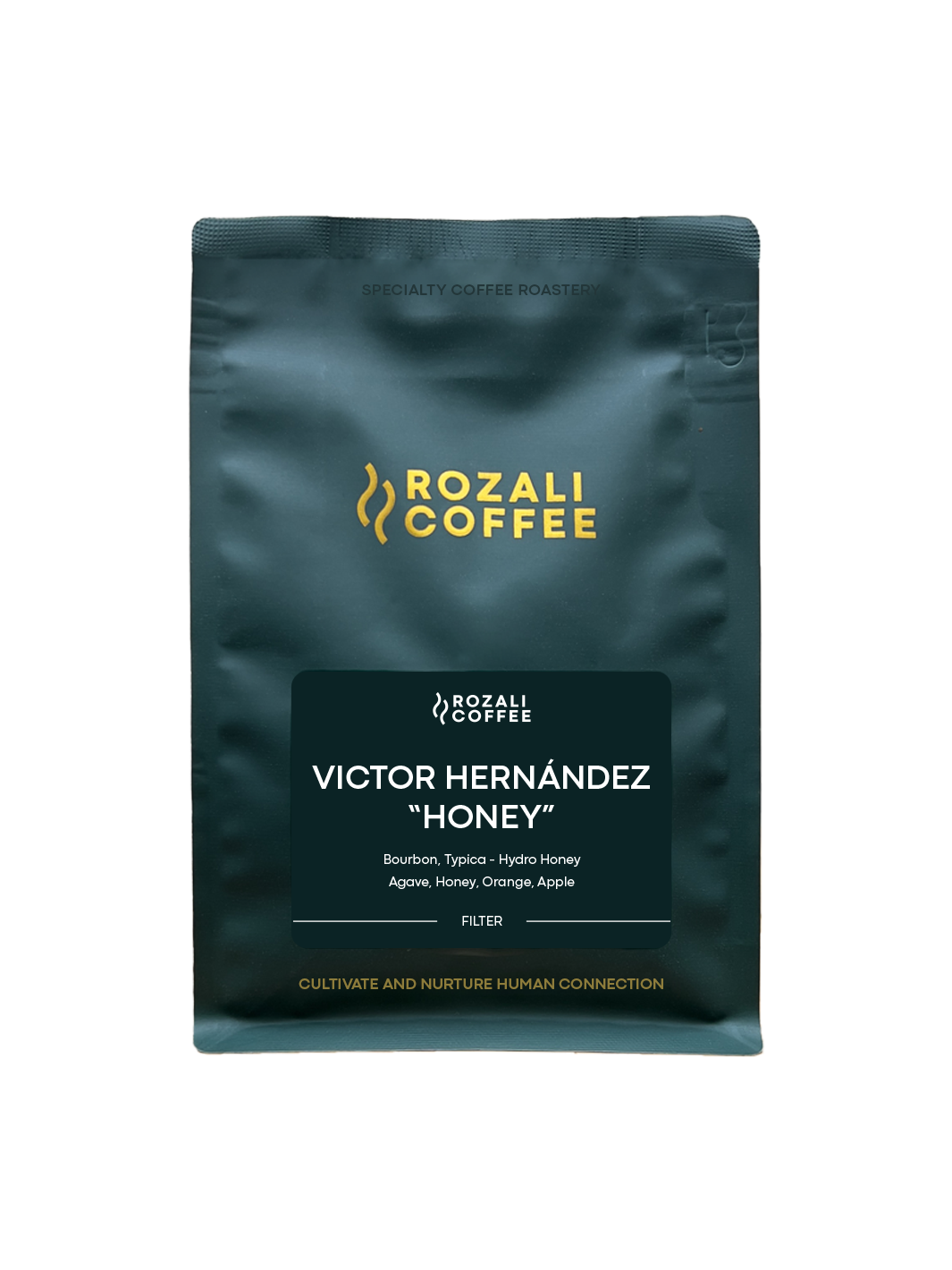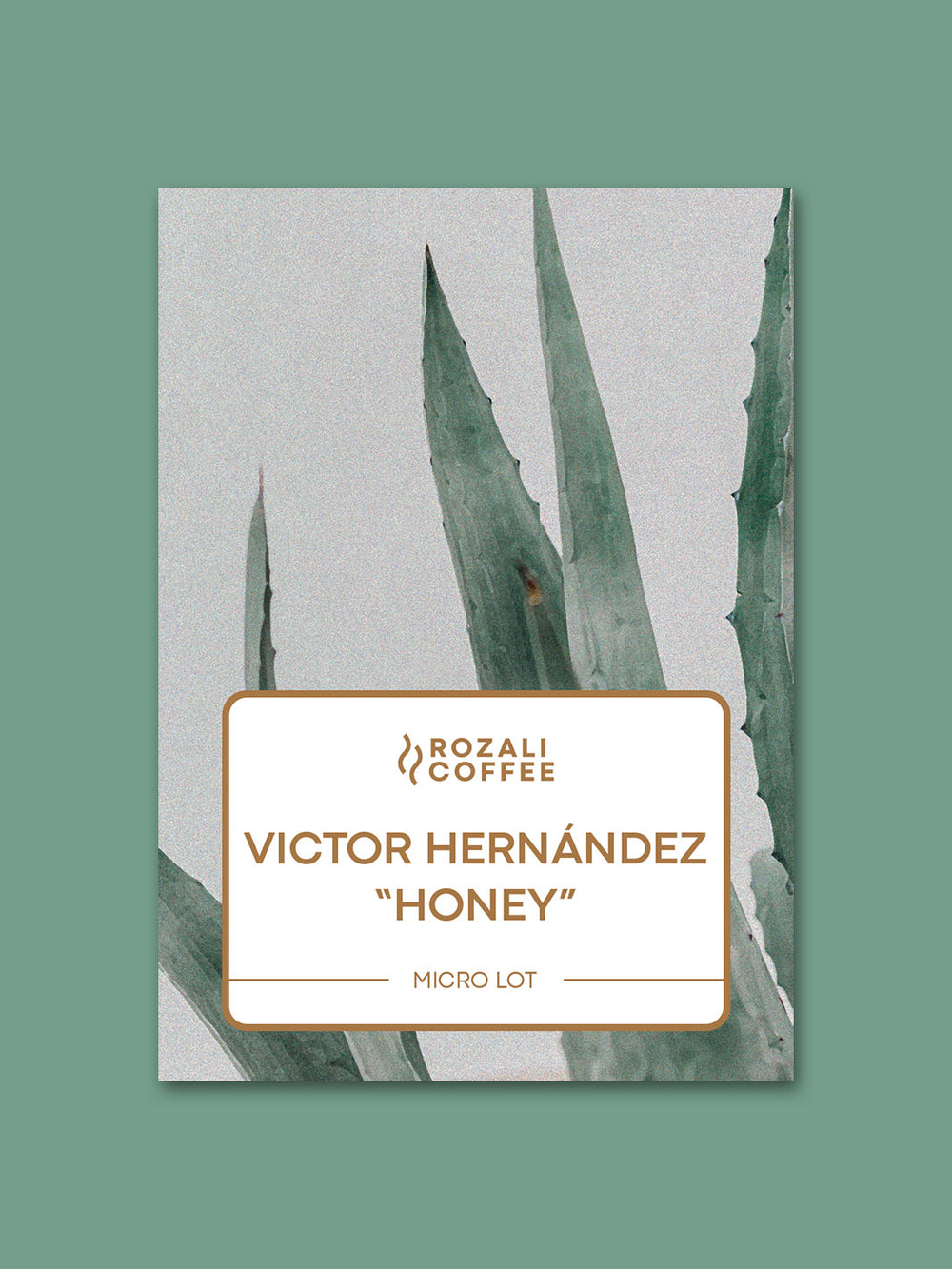Victor Lara Hernández
Finca Santoli is a third-generation coffee grower located in the beautiful landscapes of Veracruz. It is a symbol of the dedication of coffee producers who have spent their lives growing the best quality Arabica beans while also prioritizing sustainability. The name of the farm is a tribute to the Community of Santa Rosa Teocelo, Veracruz.
The farm is now managed by Victor Lara Hernández and his brother Hilder, who oversee the farm's operations. The Lara Hernández family values supporting the local community, which is why they provide employment opportunities and dignified transportation to workers in the region. This commitment ensures that workers return each season or even secure permanent positions. Up to 200 pickers are employed during the harvest season.
Finca Santoli is actively involved in environmental conservation. The coffee plantations are pollinated by the endemic Melipona bee, which unfortunately is endangered. The production of honey serves as an additional source of income and aids in coffee cultivation through pollination.
Victor and Hilder acknowledge the challenges posed by migration in the region. However, they are confident that by implementing social benefit programs, they can contribute to improving productivity and economic opportunities in the area. Their work stands as a testament to their commitment to both the community and the environment.

The Lara Hernández family values supporting the local community, which is why they provide employment opportunities and dignified transportation to workers in the region.

Veracruz
Coffee was introduced to Mexico in the late 1700s by Europeans who owned farms and employed indigenous Mexican laborers to cultivate it. In the early 20th century, agrarian land reforms began to transform the coffee industry. Nowadays, Mexican coffee farms are very different from the large plantations of the past, with 515,000 producers, 85% of whom are indigenous Mexicans. Additionally, 95% of these producers cultivate fewer than three hectares of land.
The three main coffee-producing regions in Mexico are Chiapas, Oaxaca, and Veracruz. Each region has its own distinct coffee character, with Veracruz being the first state to see a coffee tree planted in its soil.
Veracruz's finest coffees grow on inland mountains at 1,100-1,600 meters above sea level. They have notes of light red fruits, blueberries, caramel, and panela, and are delicate with a bright acidity. They are also very juicy, with a sweet and sour aftertaste.
Veracruz is the most technologically advanced state out of the three, with more disease-resistant varieties and controlled sowing. Many coffee producers evenly distribute trees one meter apart, with no more than 5,000 plants per hectare.









